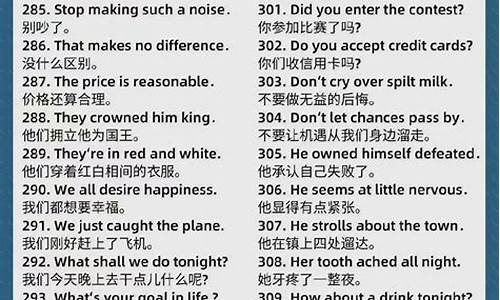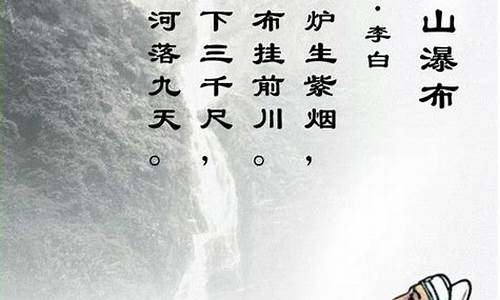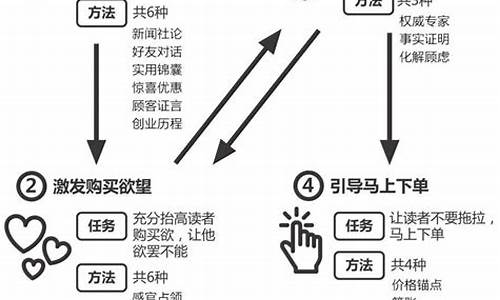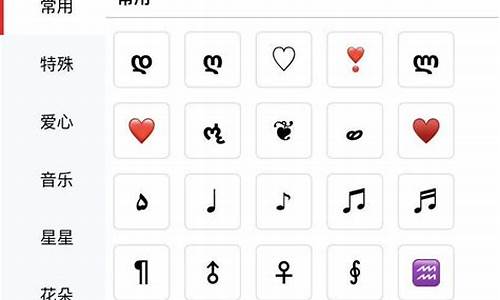您现在的位置是: 首页 > 名人语录 名人语录
英语常见句子教学_英语句子的教学方法
tamoadmin 2024-09-04 人已围观
简介1.英语句子结构 英语句子结构有哪些2.常见的英语作文万能句子3.英语句子的种类和用法,有哪些啊? #英语# 导语听、说、读、写既是学习英语的四种基本手段也是英语学习者的四项基本技能,其中写作是最为关键的输出部分,并且在高中英语教学中越来越受到重视,这一点从高考书面表达的分值比重不断增加就很容易看出。以下是由 无 精心收集了中考英语写作常用句子,供大家欣赏学习! 篇一中考英语写作常用句子精选
1.英语句子结构 英语句子结构有哪些
2.常见的英语作文万能句子
3.英语句子的种类和用法,有哪些啊?

#英语# 导语听、说、读、写既是学习英语的四种基本手段也是英语学习者的四项基本技能,其中写作是最为关键的输出部分,并且在高中英语教学中越来越受到重视,这一点从高考书面表达的分值比重不断增加就很容易看出。以下是由 无 精心收集了中考英语写作常用句子,供大家欣赏学习!
篇一中考英语写作常用句子精选
1. 不用说…… It goes without saying that …
= (It is) needless to say (that) ….
= It is obvious that ….
例:不用说早睡早起是值得的。
It goes without saying that it pays to keep early hours.
2. 在各种……之中,…… Among various kinds of …, … /= Of all the …, …
例︰在各种运动中我尤其喜欢慢跑。
Among various kinds of sports, I like jogging in particular.
3. 就我的看法……;我认为……
In my opinion, …
= To my mind, ….
= As far as I am concerned, …
= I am of the opinion that ….
例:In my opinion, playing video games not only takes much time but is also harmful to health.
就我的看法打电动玩具既花费时间也有害健康。
4. 随着人口的增加…… With the increase/growth of the population, …
随着科技的进步…… With the advance of science and technology, …
例:With the rapid development of Taiwan’s economy, a lot of social problems he come to pass.
随着台湾经济的快速发展许多社会问题产生了。
5. ……是必要的 It is necessary (for sb.) to do / that …
…… 是重要的 It is important/essential (for sb.) to do / that …
…… 是适当的 It is proper (for sb.) to do / that …
……是紧急的 It is urgent (for sb.) to do / that …
例:It is proper for us to keep the public places clean.
It is proper that we (should) keep the public places clean.
我们应当保持公共场所清洁。
6. 花费 spend … on sth. / doing sth. …
例:我们不应该在我们不感兴趣的事情上花太多的时间。
We shouldn’t spend too much time on something we aren’t interested in.
7. how 引导的感叹句
例:那至少可以证明你很诚实。
At least it will prove how honest you are.
8. 状语从句
A) 如果你不……,你就会…… If you don’t ..., you’ll ...
例︰If you don’t keep working hard, you’ll lose the chance.
如果你不坚持努力工作,你就会失去这次机会。
B) 如此 ……,以至于…… so … that …
例:At that moment, I was so upset that I wanted to give up.
当时,我非常伤心,最后都想放弃了。
C) 每当我听到……我就忍不住感到兴奋。Whenever I hear …, I cannot but feel excited.
每当我做……我就忍不住感到悲伤。 Whenever I do …, I cannot but feel sad.
每当我想到……我就忍不住感到紧张。Whenever I think of …, I cannot but feel nervous.
每当我遭遇……我就忍不住感到害怕。Whenever I meet with …, I cannot but feel frightened.
每当我看到……我就忍不住感到惊讶。Whenever I see …, I cannot but feel surprised.
例:Whenever I think of the clean brook near my home, I cannot but feel sad.
= Every time I think of the clean brook near my home, I cannot help feeling sad.
每当我想到我家附近那一条清澈的小溪我就忍不住感到悲伤。
9. 宾语从句
我认为,…… / 我认为……不 I think / I don’t think that …
我想知道是否…… I wonder whether …
例:He doesn’t think I should stop him joining the club.
他认为我不应该阻止他参加这个俱乐部。
10. Since + S + 过去式, S + 现在完成式.
例:Since he went to senior high school, he has worked very hard.
自从他上高中,他就一直很用功。
篇二中考英语写作常用句子精选
1、人类正面临着一个严重的问题…,这个问题变得越来越严重。
Man is now facing a big problem () which is becoming more and more serious.
2、现在,……,它们给我们的日常生活带来了许多危害。首先,……;其次,……更为糟糕的是……
Today, ____, which he brought a lot of harms in our daily life. First, ____ Second,____. What makes things worse is that______.
3、简而言之,为了把世界变成更美好的地方,我们必须勤奋工作。
In short , we must work hard to make the world a better place .
4、这是一个我们必须学会面对的痛苦的新情况。
It is another new and bitter truth we must learn to face .
5、根据图表/数字/统计数字/表格中的百分比/图表/条形图/成形图可以看出…很显然…,但是为什么呢?
According to the figure/number/statistics/percentages in the chart/bar graph/line/graph,it can be seen that() while. Obviously,(),but why?
6、…在我们的日常生活中起着越来越重要的作用,它给我们带来了许多好处,但同时也引发一些严重的问题。
() has been playing an increasingly important role in our day-to-day life.it has brought us a lot of benefits but has created some serious problems as well.
7、每个人都该有个梦想。
Everybody should he a dream.
8、任何事物都是有两面性,……也不例外。它既有有利的一面,也有不利的一面。
Everything has two sides and ______ is not an exception,it has both advantages and disadvantages.
9、失败乃成功之母。
Failure is the mother of success.
10、俗话说(常言道)……,它是我们前辈的经历,但是,即使在今天,它在许多场合仍然适用。
There is an old saying______. Its the experience of our forefathers,however,it is correct in many cases even today.
11、已成为人的关注的热门话题,特别是在年青人当中,将引发激烈的辩论。
has become a hot topic among people,especially among the young and heated debates are right on their way.
12、关于……人们有不同的观点。一些人认为……
There are different opinions among people as to ____ .Some people suggest that ____.
13、在我们的日常生活中起着越来越重要的作用它给我们带来了许多好处,但同时也引发一些严重的问题。
has been playing an increasingly important role in our day-to-day life.it has brought us a lot of benefits but has created some serious problems as well .
14、任何事物都是有两面性,…也不例外。它既有有利的一面,也有不利的一面。
Everything has two sides and( )is not an exception,it has both advantages and disadvantages.
15、…已成为人的关注的热门话题,特别是在年青人当中,将引发激烈的辩论。
() has become a hot topic among people,especially among the young and heated debates are right on their way.
16、认识到问题是找到解决办法的第一步。
Recognizing a problem is the first step in finding a solution .
17、关于……人们的观点各不相同,一些人认为(说)……,在他们看来,……
People's opinions about ______ vary from person to person. Some people say that ____.To them,_____.
18、让我们往好处想吧。
Let's look on the bright side.
19、抱的愿望,做最坏的打算。
Hope for the best, but prepare for the worst.
20、岁月既往,一去不回。
Lost time is never found again.
21、现在,……很普遍,许多人喜欢……,因为……,另外(而且)……
Nowadays,it is common to ______. Many people like ______ because ______.Besides,____.
篇三中考英语写作常用句子精选
1. We ' re often told that ......But is this really the case ?
我们经常被告知......但事实真是这样吗?
2. People used to ......however , things are quite different today .
过去,人们习惯......但,今天的情况有很大的不同。
3. some people think that ......Others believe that the opposite is true . There is probably some truth in both sides.But we must realize that ......
一些人认为......另一些人持相反意见。也许双方的观点都有一定道理。但是我们必须认识到......
4. Recognizing a problem is the first step in finding a solution .
认识到问题是找到解决办法的第一步。
5. It is another new and bitter truth we must learn to face .
这是一个我们必须学会面对的痛苦的新情况。
6. In short , we must work hard to make the world a better place .
简而言之,为了把世界变成更美好的地方,我们必须勤奋工作。
7. Lost time is never found again.
岁月既往,一去不回。
8. Everybody should he a dream.
每个人都该有个梦想.
9. Hope for the best, but prepare for the worst.
抱的愿望,做最坏的打算。
10. Failure is the mother of success.
失败乃成功之母。
11. Let's look on the bright side.
让我们往好处想吧。
12. It must be noted that learning must be done by a person himself.
必须指出学习只能靠自己。
13. A large number of people tend to live under the illusion that they had completed their education when they finished their schooling. Obviously,they seem to fail to take into account the basic fact that a person's education is a most important aspect of his life.
许多人存在这样的误解,认为离开学校就意味着结束了他们的教育。显然,他们忽视了教育是人生重要部分这一基本事实。
14. As for me,I'm in for of the opinion that education is not complete with graduation,for the following reasons:
就我而言,我同意教育不应该随着毕业而结束的观点,有以下原因:
15. It is commonly accepted that no college or university can educate its students by the time they graduate.
人们普遍认为高校是不可能在毕业的时候教会他们的学生所有知识的。
16. Even the best possible graduate needs to continue learning before she or he becomes an educated person.
即使秀的毕业生,要想成为一个博学的人也要不断地学习。
17. It is commonly thought that our society had dramatically changed by modern science and technology,and human had made extraordinary progress in knowledge and technology over the recent decades.
人们普遍认为我们的现代科技使我们的社会发生了巨大的变化,近几十年人类在科技方面取得了惊人的进步。
18. Now people in growing numbers are beginning to believe that learning new skills and knowledge contributes directly to enhancing their job opportunities or promotion opportunities.
现在越来越多的人开始相信学习新的技术和知识能直接帮助他们获得工作就会或提升的机会。
19. An investigation shows that many older people express a strong desire to continue studying in university or college.
一项调查显示许多老人都有到大学继续学习的愿望。
20. For the majority of people,reading or learning a new skill has become the focus of their lives and the source of their hiness and contentment after their retirement.
对大多数人来讲,退休以后,阅读或学习一项新技术已成为他们生活的中心和快乐的来源。
英语句子结构 英语句子结构有哪些
1. One’s opinion is that … 2. In one’s eye(s)/opinion, … 3. To one’s mind, …
4. Somebody is of the opinion that …
5. Somebody has a good/poor opinion of
6.Generally speaking
7. First of all
No one would deny that… 2. Everyone would agree that…
3. When it comes to …, most people/the public maintain(s)… 4. Now it is widely believed that …
5. A public debate has arisen as to/concerning/over whether… 6. Suppose/Imagine that…
7. Let’s assume/suppose/imagine that…
8. In our life, there often ears such an occasion when…
9. Once in a newspaper/magazine, I hit on/upon the report that… 10. One day, one hened to witness the incident as follows… 11. The scientific/statistic studies show/indicate that…
12. There is a general discussion today about the issue/ problem of… Those who criticize… argue
that…They believe that….But people who advocate…,on the other hand, argue that…
常见的英语作文万能句子
1、英语基本句型结构主要有:Subject(主语)+Verb(谓语)、Subject(主语)+Link. V(系动词)+Predicate(表语)、Subject(主语)+Verb(谓语)+Object(宾语)等。
2、主谓结构:Subject(主语)+Verb(谓语),谓语动词均为不及物动词,后面不跟宾语,但可以跟时间、地点、方式等状语。
例句:
The rain has stopped.雨停了。
The sun rises.太阳升起来了。
You will success.你会成功的。
3、主谓宾结构:Subject(主语)+Verb(谓语)+Object(宾语),这里的谓语动词是及物动词,后面必须跟宾语。
例句:
She cooked her hushand a delicious meal.她给她丈答夫做了一顿美味的饭。
The story sounds interesting.这个故事听起来有趣。
4、主系表结构:ubject(主语)+Link. V(系动词)+Predicate(表语),常见动词有:be(是),become(成为),look(看上去),get(变得),turn(变得),grow(成为,变得),come(变得),ear(显得),sound(听起来),smell(闻起来)等。
例句:
They seem to be hungry.他们似乎饿了。
They look tired and thirsty.他们看起来又累又渴。
He looks handsome.他看上去很帅。
5、主谓宾+宾补结构:此结构中谓语动词为及物动词或短语,补足语可以是为名词、形容词、介词短语、分词、不定式。
例句:We keep the classroom clean.我们保持教室干净。
6、主谓+间宾+直宾结构:此结构中谓语动词为及物动词或短语,其后接直接(sb.)和间接(sth)两个宾语。
例句:Her father handed her a letter.她爸爸给她买了一本词典。
英语句子的种类和用法,有哪些啊?
常见的英语作文万能句子如下:
1、I was delighted/glad to receive your letter。
很高兴收到你的来信。
2、Your letter came to me this morning。
我今天早上收到了你的来信。
3、I he received your letter of June the 29th。
我收到了你于6月29日的来信。
4、You asked me about(problem,question...),now let me give you some advice。
你在来信中询问我……,现在,让我给你一些建议。
5、It has been a long time since we met。
我们很久没见面了。
6、How time flies!It's three months since I saw you last time。
时间过得真快!我们有三个月没见面了。
7、I'm writing to thank you for your help during my stay in America。
我写信是为了感谢你对我在美国期间的帮助。
8、I am looking forward to receiving your letter。
我期待你的来信。
写英文信的注意事项:
1、要以收信人为主题。信件的内容,应该是跟收信人相关的,或者至少,不能让收信人觉得这是一封邮件。
2、要简洁明了。既然是以收信人为主题,那就不要说那么多废话。对收信人最大的尊重,不是说“感谢你抽时间看我的信”,而是信写得简洁明了,一点不浪费收信人的时间。
一、陈述句:是用来陈述一件事情或表示一种看法,可分为肯定句和否定句两种形式。
1、谓语动词是be动词,助动词he, has, will,情态动词can等时,只要直接在这些词后面加not就构成否定形式。
eg. Lily has already read this new book. (改为否定句)
Lily ______ ______ this new book ________.
2、谓语动词是行为动词而又没有助动词或情态动词时,必须在谓语动词前加助动词,一般现在时加助动词do ,第三人称单数加does,一般过去时加did,再和not构成否定结构。必须指出的是:don't, doesn't, didn't后都用动词原形。
eg.1)Jill has lunch at school every day. (改为否定句)
Jill _____ _____ lunch at school every day.
2)The children had a good time at the party. (改为否定句)
The children ______ _____ a good time at the party.
3)Rose didn't drink any milk this morning.(改为肯定句)
Rose ______ ______ milk this morning.
二、疑问句:是用来提出问题的句子。
A.一般疑问句:以be动词, he /has/do等助动词、can/may等情态动词开头,以yes或no来回答的问句。
它的基本结构是:Be/He /Has/Did等助动词(包括情态动词)+主语+谓语(包括表语)+┄?回答常用简略回答。
1、谓语动词是be动词、助动词、情态动词时,只要直接把这些词置于句首,句末改成问号。
eg. There's something wrong with his bike.(改成疑问句)
______ _____ _______ wrong with his bike?
2、谓语动词是行为动词时,必须在句首加上助动词Do、Does(三单)、Did(过去式)加上这些助动词后,句子中谓语动词必须用原形。
eg. 1)Edison built a science lab himself when he was ten. (改成疑问句)
______ Edison ______ a science lab himself when he was ten?
2)Those Japanese like Chinese food.(改成疑问句)
______ those Japanese ________ Chinese food?
注意:在把肯定句改成否定句或一般疑问句的时候,要注意句中是否有already、some、something、somebody等词,如果有也必须进行改变,already要改成yet,some、something、somebody等分别改成any、anything、anybody等。另外,在改成否定句的时候注意把too改成either,both改成neither,all改成none等.在改成一般疑问句的时候,常常把第一人称I、we改成第二人称you。
B.特殊疑问句:以疑问代词或疑问副词开头,提出疑问的句子。
它的基本结构是:特殊疑问词+一般疑问句语序。但是如果疑问词在句子中作主语或作主语的定语,就用特殊疑问词+陈述句语序。常用的疑问词有:what, who(whom), whose,which,when,where,how,why等,回答时针对问句中的代词和副词来回答,不用yes或no来回答。
1)对指物名词或谓语动词提出疑问,疑问词用what
①The twins were making a kite when their mother came in. (划线提问)
______ _____ the twins _____ when their mother came in?
②Mrs Turner asked her son to buy some eggs for supper. (划线提问)
_______ ______ Mrs Turner ask her son ______ _______?
2)对名词前定语提出疑问,疑问词应用which,而且必须和名词连用。
I'm going to take the shirt on the right.(划线提问)
______ _____ are you going to take?
3)对指人名词或代词提问用who,作宾语时提问用whom。
eg.Li Ping,they,his father
4)对物主代词和名词所有格提问用whose。
eg. Li Ping's coat→Whose coat my father→Whose father
5)对具体时间提出疑问,如 in the morning,last Sunday等,疑问词用when;对具体几点钟提问,疑问词应用what time。
6)对具体地点提出疑问,疑问词应用where。
The pupils are hing a picnic at the foot of the hill. (划线提问)
_____ _____ the pupils hing a picnic?
7)对表原因的从句提问,常见的有because引导的从句,疑问词应用why。
Xiao Cheng didn't go to the farm with us because he was ill. (划线提问)
_______ _____ Xiao Cheng go to the farm with us?
8)对方式或程度等提出疑问,用疑问词How。
eg. go by bike like very much
9)对数量提出疑问,疑问词为How many,要注意how many必须跟名词的复数形式。
eg. two hundred sheep→How many sheep
10)对价格提出疑问,疑问词用How much。
eg. I paid fifty yuan for the sweater.
______ ______ did you pay for the sweater?
11)对时间长度提出疑问,疑问词应用How long。
eg. I've worked in that factory for two years. (划线提问)96中考题
______ _____ _______ you worked in that factory?
12)对时间频率,如 once a year, twice a week等提问,疑问词用How often。
13)对具体次数,如 once, twice, three times等提问,疑问词用How many times。
eg. ______ did he call you the day before yesterday?Twice. 96中考题
A.What time B.How many times C.How much D.How long
14)对in+一段时间提问,疑问词一般用How soon。
eg. Jane and her brother will finish the work in two hours. (划线提问)
_____ _____ _____ Jane and her brother finish the work?
15)对距离提出疑问,疑问词用How far。
eg. It's about two kilometres from here to the country.(划线提问)
______ _____ _____ _____ from here to the country?
16)另外,对日期、星期、天气等提出疑问,则分别用
What's the date?
What day is it ? 如果是过去时间,就用was代替is。
What's the weather like?
练习题
1)She does exercises at home in the evening.(改成否定句、一般疑问句)
She ______ ______ exercises at home in the evening.
______ she _____ exercises at home in the evening?
2)He said something important at the meeting.(改为否定句,一般疑问句)
He _____ ______ ______ important at the meeting.
______ he ______ ______ important at the meeting?
3)It'll take them three weeks to finish the work.(划线提问)
______ ______ _______ it take them to finish the work?
4)I he to wash all the plates and things after meals.(划线提问)
_____ _____ you he to wash all the plates and things?
5)The woman in the red coat is her mother.(划线提问)
______ ______ is her mother?
6)Li Ping spent twenty yuan on the dictionary.(划线提问)
_____ ____ ____ Li Ping _____ on the dictionary?
思考题
1)The worker's visited the factory already.(改成否定句、一般疑问句)
The worker _____ _____ the factory ______.
____ the worker ___ the factory __?
2)Both of his parents are workers.(改成否定句)
___ of his parents ______ a worker.
3)He went to the park with his sister.(划线提问)
_____ ____ ____ he go to the park?
4)We really enjoyed working on the farm.(划线提问)
What _____ you really enjoy ______?
5)She writes to her parents once a week.(划线提问)
_______ ______ ______ she write to her parents?
6)Our P.E teacher has been at this school since he came.(划线提问)
______ ______ ______ our P.E teacher been at this school?
一、陈述句:是用来陈述一件事情或表示一种看法,可分为肯定句和否定句两种形式。
1、谓语动词是be动词,助动词he, has, will,情态动词can等时,只要直接在这些词后面加not就构成否定形式。
eg. Lily has already read this new book. (改为否定句)
Lily ______ ______ this new book ________.
2、谓语动词是行为动词而又没有助动词或情态动词时,必须在谓语动词前加助动词,一般现在时加助动词do ,第三人称单数加does,一般过去时加did,再和not构成否定结构。必须指出的是:don't, doesn't, didn't后都用动词原形。
eg.1)Jill has lunch at school every day. (改为否定句)
Jill _____ _____ lunch at school every day.
2)The children had a good time at the party. (改为否定句)
The children ______ _____ a good time at the party.
3)Rose didn't drink any milk this morning.(改为肯定句)
Rose ______ ______ milk this morning.
二、疑问句:是用来提出问题的句子。
A.一般疑问句:以be动词, he /has/do等助动词、can/may等情态动词开头,以yes或no来回答的问句。
它的基本结构是:Be/He /Has/Did等助动词(包括情态动词)+主语+谓语(包括表语)+┄?回答常用简略回答。
1、谓语动词是be动词、助动词、情态动词时,只要直接把这些词置于句首,句末改成问号。
eg. There's something wrong with his bike.(改成疑问句)
______ _____ _______ wrong with his bike?
2、谓语动词是行为动词时,必须在句首加上助动词Do、Does(三单)、Did(过去式)加上这些助动词后,句子中谓语动词必须用原形。
eg. 1)Edison built a science lab himself when he was ten. (改成疑问句)
______ Edison ______ a science lab himself when he was ten?
2)Those Japanese like Chinese food.(改成疑问句)
______ those Japanese ________ Chinese food?
注意:在把肯定句改成否定句或一般疑问句的时候,要注意句中是否有already、some、something、somebody等词,如果有也必须进行改变,already要改成yet,some、something、somebody等分别改成any、anything、anybody等。另外,在改成否定句的时候注意把too改成either,both改成neither,all改成none等.在改成一般疑问句的时候,常常把第一人称I、we改成第二人称you。
B.特殊疑问句:以疑问代词或疑问副词开头,提出疑问的句子。
它的基本结构是:特殊疑问词+一般疑问句语序。但是如果疑问词在句子中作主语或作主语的定语,就用特殊疑问词+陈述句语序。常用的疑问词有:what, who(whom), whose,which,when,where,how,why等,回答时针对问句中的代词和副词来回答,不用yes或no来回答。
1)对指物名词或谓语动词提出疑问,疑问词用what
①The twins were making a kite when their mother came in. (划线提问)
______ _____ the twins _____ when their mother came in?
②Mrs Turner asked her son to buy some eggs for supper. (划线提问)
_______ ______ Mrs Turner ask her son ______ _______?
2)对名词前定语提出疑问,疑问词应用which,而且必须和名词连用。
I'm going to take the shirt on the right.(划线提问)
______ _____ are you going to take?
3)对指人名词或代词提问用who,作宾语时提问用whom。
eg.Li Ping,they,his father
4)对物主代词和名词所有格提问用whose。
eg. Li Ping's coat→Whose coat my father→Whose father
5)对具体时间提出疑问,如 in the morning,last Sunday等,疑问词用when;对具体几点钟提问,疑问词应用what time。
6)对具体地点提出疑问,疑问词应用where。
The pupils are hing a picnic at the foot of the hill. (划线提问)
_____ _____ the pupils hing a picnic?
7)对表原因的从句提问,常见的有because引导的从句,疑问词应用why。
Xiao Cheng didn't go to the farm with us because he was ill. (划线提问)
_______ _____ Xiao Cheng go to the farm with us?
8)对方式或程度等提出疑问,用疑问词How。
eg. go by bike like very much
9)对数量提出疑问,疑问词为How many,要注意how many必须跟名词的复数形式。
eg. two hundred sheep→How many sheep
10)对价格提出疑问,疑问词用How much。
eg. I paid fifty yuan for the sweater.
______ ______ did you pay for the sweater?
11)对时间长度提出疑问,疑问词应用How long。
eg. I've worked in that factory for two years. (划线提问)96中考题
______ _____ _______ you worked in that factory?
12)对时间频率,如 once a year, twice a week等提问,疑问词用How often。
13)对具体次数,如 once, twice, three times等提问,疑问词用How many times。
eg. ______ did he call you the day before yesterday?Twice. 96中考题
A.What time B.How many times C.How much D.How long
14)对in+一段时间提问,疑问词一般用How soon。
eg. Jane and her brother will finish the work in two hours. (划线提问)
_____ _____ _____ Jane and her brother finish the work?
15)对距离提出疑问,疑问词用How far。
eg. It's about two kilometres from here to the country.(划线提问)
______ _____ _____ _____ from here to the country?
16)另外,对日期、星期、天气等提出疑问,则分别用
What's the date?
What day is it ? 如果是过去时间,就用was代替is。
What's the weather like?
练习题
1)She does exercises at home in the evening.(改成否定句、一般疑问句)
She ______ ______ exercises at home in the evening.
______ she _____ exercises at home in the evening?
2)He said something important at the meeting.(改为否定句,一般疑问句)
He _____ ______ ______ important at the meeting.
______ he ______ ______ important at the meeting?
3)It'll take them three weeks to finish the work.(划线提问)
______ ______ _______ it take them to finish the work?
4)I he to wash all the plates and things after meals.(划线提问)
_____ _____ you he to wash all the plates and things?
5)The woman in the red coat is her mother.(划线提问)
______ ______ is her mother?
6)Li Ping spent twenty yuan on the dictionary.(划线提问)
_____ ____ ____ Li Ping _____ on the dictionary?
思考题
1)The worker's visited the factory already.(改成否定句、一般疑问句)
The worker _____ _____ the factory ______.
____ the worker ___ the factory __?
2)Both of his parents are workers.(改成否定句)
___ of his parents ______ a worker.
3)He went to the park with his sister.(划线提问)
_____ ____ ____ he go to the park?
4)We really enjoyed working on the farm.(划线提问)
What _____ you really enjoy ______?
5)She writes to her parents once a week.(划线提问)
_______ ______ ______ she write to her parents?
6)Our P.E teacher has been at this school since he came.(划线提问)
______ ______ ______ our P.E teacher been at this school?
句型转换题是中考常见题型,它主要用来考查大家对句子结构的构成、变化的掌握及在行文中的运用等,类型繁多。现以近两年中考题为例,分类介绍如下:
[第一类] 改成否定句
英语中有关否定的结构各不相同,除动词部分构成的否定外,还有名词、代词的否定、部分否定、否定转移、以及一些表示否定意义的短语或句型等。
一、含有连系动词、情态动词等助动词的句子改为否定句时,在连系动词、情态动词等的后面加not就行了。如:(划线部分为正确答案,下同。)
1. He was late for school yesterday. (2005黑龙江省泰州市)
He wasn’t late for school yesterday.
2. The students of No.2 Middle School he gone for a picnic already. (2004新疆)
The students of No.2 Middle School hen’t gone for a picnic yet.
二、祈使句变否定句一般在其前加don’t。如:
3. Open the window. (2005江苏省)
Don’t open the window.
三、实义动词的否定式是在实义动词前加don’t, doesn’t, didn’t等。如:
4. She does the housework every day. (2005黑龙江省哈尔滨市)
She doesn’t do the housework every day.
5. He returned the book to the library this morning. (2004重庆市)
He didn’t return the book to the library this morning.
注意:变否定句时须注意某些词语的变化,如some改为any, something改为anything, already改为yet, both改为neither, all改为none等。又如:
6. Both of them are my best friends. (2004甘肃省兰州市)
Neither of them is my best friend.
[第二类] 改为疑问句
可分为一般疑问句、选择疑问句和反意疑问句。
一、变一般疑问句时,含有连系动词、情态动词的句子,只需将它们移至句首,第一个字母变为大写,句尾改为问号即可。含有实义动词的句子,在实义动词前加do, does, did等。变化过程中也要注意某些词语和人称的变化。如:
7. There’s something to eat in the cupboard.(2005贵州省贵阳市)
Is there anything to eat in the cupboard?
8. Kate does morning exercises every day. (2004山东省济南市)
Does Kate do morning exercises every day?
9. Ann returned the book to the library yesterday. (2005四川省成都市)
Did Ann return the book to the library yesterday?
二、变选择疑问句时,如果该句是一般疑问句,则在后面直接加“or+另一选择部分”就行了;若是陈述句,则要先变成一般疑问句。如:
10. John is an American. (用a Canadian改为选择疑问句)(2004新疆)
Is John an American or a Canadian?
三、变反意疑问句时,要注意“前肯后否”和“前否后肯”,还要注意一些特殊形式的反意疑问句。如:
11. She has hardly had anything this morning, has she?(2005山东省泰安市)
12. You will meet your friends at the railway station, won’t you?(2004重庆)
13. She had nothing for breakfast, did she?(2005青海)
14. There was no time for the twins to go shopping, was there?(2004黑龙江省哈尔滨市)









